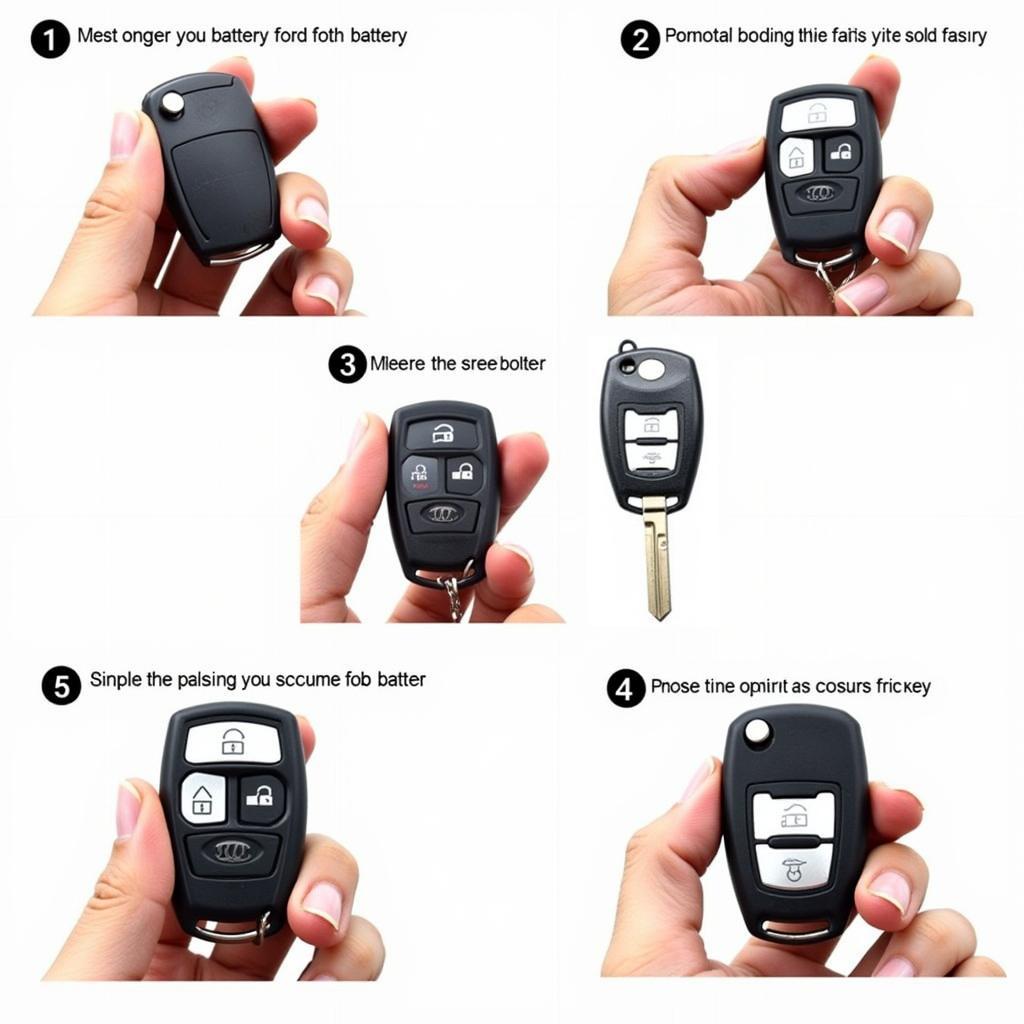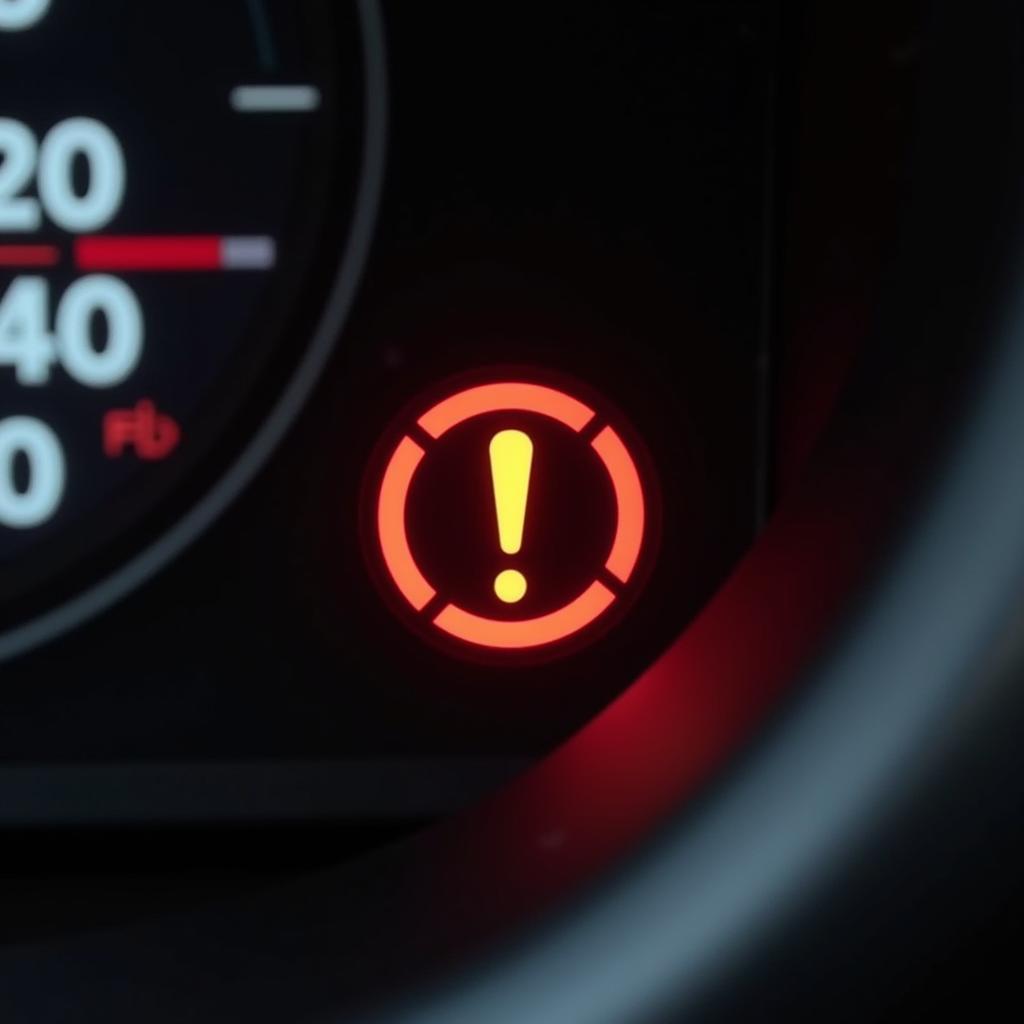The brake warning light on your 1998 Toyota Avalon is a crucial safety feature, illuminating on the dashboard to signal potential issues within the braking system. Ignoring this warning could lead to decreased braking performance and increase the risk of an accident. This comprehensive guide delves into the common culprits behind a 1998 Toyota Avalon brake warning light and provides potential solutions to get you back on the road safely.
Understanding Your Avalon’s Brake Warning System
Before we jump into the causes, it’s helpful to understand how your Avalon’s brake warning system works. This system monitors several components, including:
- Brake Fluid Level: A sensor constantly checks the brake fluid level in the master cylinder. If the level drops too low, the warning light triggers.
- Parking Brake Engagement: Leaving the parking brake even partially engaged will illuminate the brake warning light.
- Brake Pad Wear: Many 1998 Avalons have wear sensors embedded in the brake pads. As the pads wear down, these sensors contact the rotor, completing a circuit and triggering the warning light.
- ABS System Fault: While less common, a fault within the Anti-lock Braking System (ABS) can also activate the brake warning light.
Common Causes of a Lit Brake Warning Light
Let’s explore the most frequent reasons your 1998 Avalon’s brake warning light might be on:
1. Low Brake Fluid
This is often the primary suspect. Over time, brake fluid naturally deteriorates and absorbs moisture, reducing its effectiveness. Additionally, a leak in the brake lines, calipers, or wheel cylinders can also lead to a drop in brake fluid level.
Solution:
- Check the brake fluid level. Locate the brake fluid reservoir (usually a translucent container with a black cap) under the hood. The minimum and maximum levels are marked on the side.
- Add brake fluid if needed. If the fluid level is low, carefully top it off with the correct type of brake fluid specified in your Avalon’s owner’s manual.
- Inspect for leaks. Look for any signs of fluid leaks around the master cylinder, brake lines, and near the wheels. If you suspect a leak, it’s crucial to have a qualified mechanic inspect and repair the issue immediately.
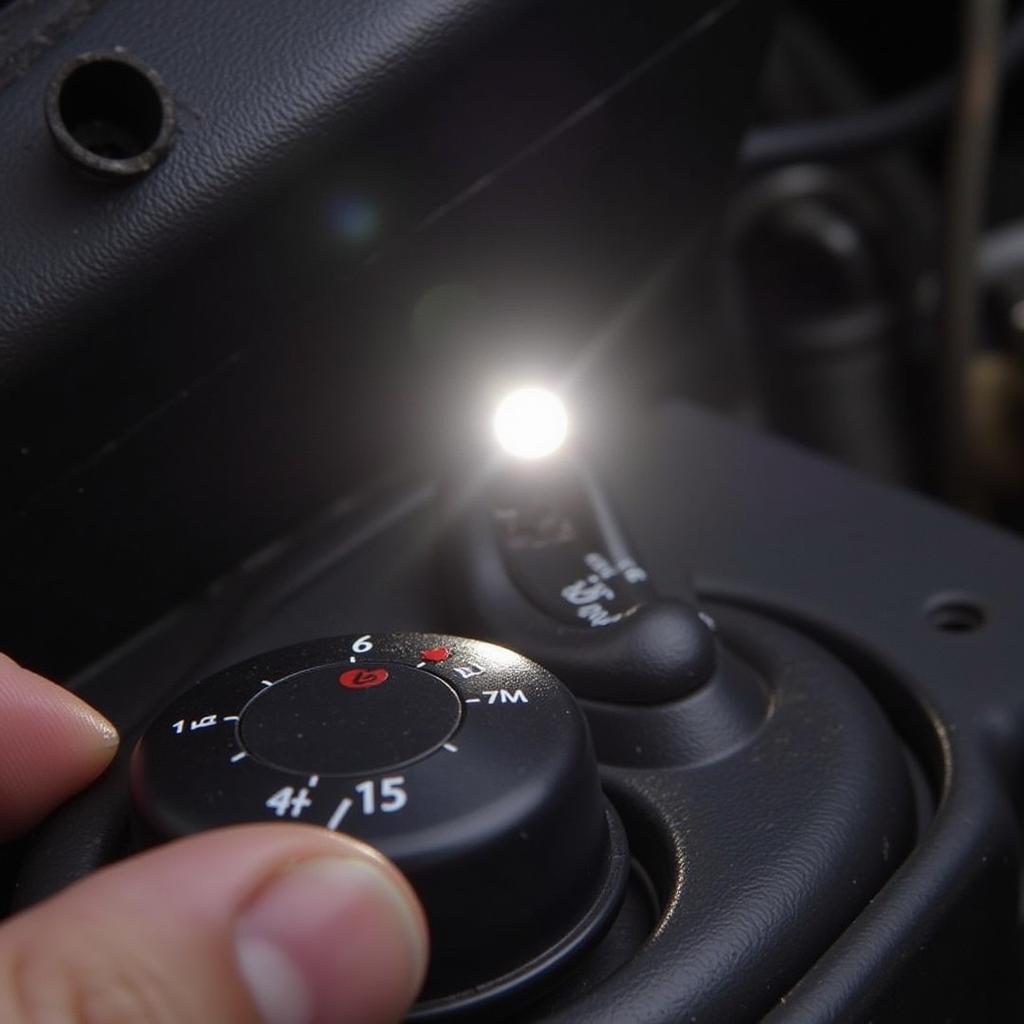 Checking Brake Fluid Level
Checking Brake Fluid Level
2. Worn Brake Pads
Brake pads are designed to wear down over time. When they reach a certain level of wear, the built-in sensors activate the warning light as a safety precaution.
Solution:
If your brake pads are worn, it’s crucial to have them replaced by a qualified mechanic as soon as possible. Driving with worn brake pads significantly reduces braking effectiveness and can damage the rotors, leading to more expensive repairs.
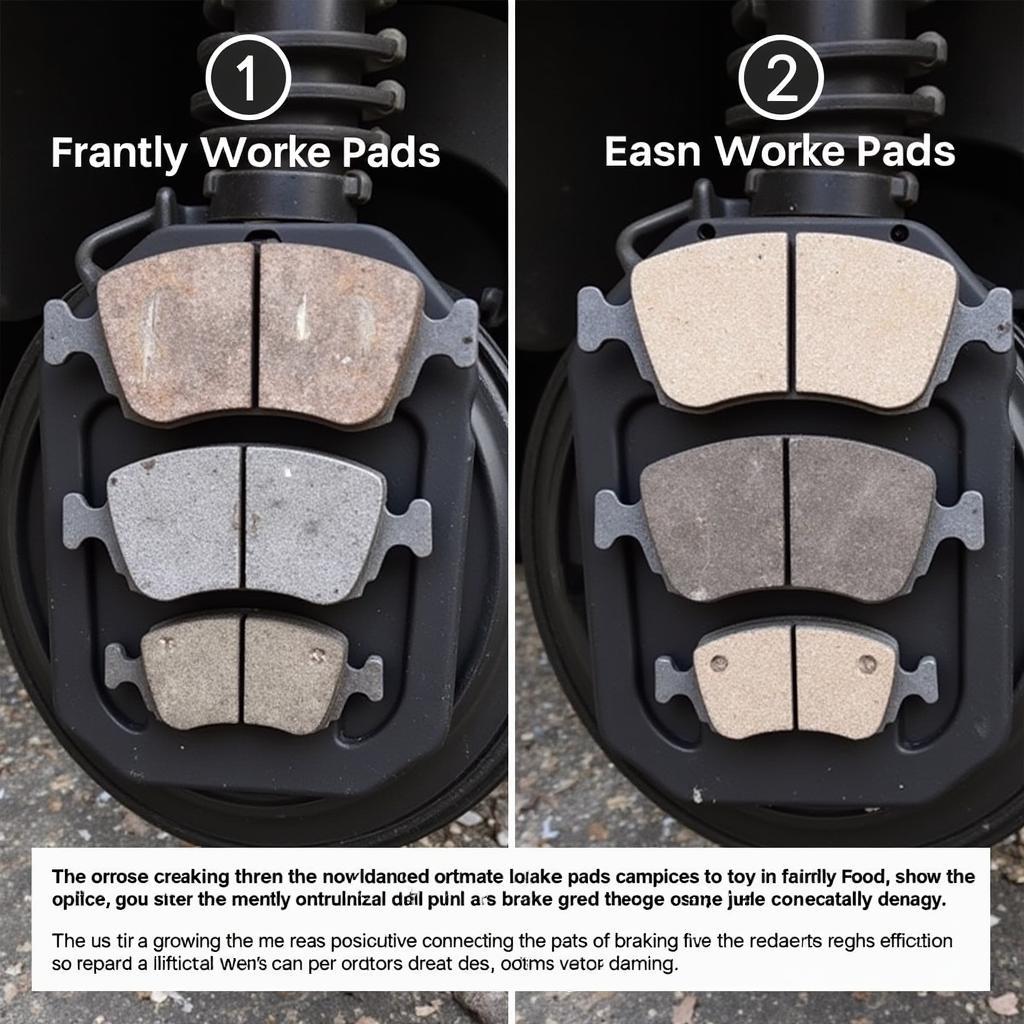 Worn Brake Pads on a 1998 Toyota Avalon
Worn Brake Pads on a 1998 Toyota Avalon
3. Parking Brake Not Fully Released
This often overlooked culprit is an easy fix. Even slightly engaging the parking brake can activate the warning light.
Solution:
Ensure the parking brake is fully released. If the light remains on after disengaging the parking brake, there might be an issue with the parking brake switch or cable, requiring further inspection.
4. Faulty ABS Sensor
While less common than the previous causes, a malfunctioning ABS sensor can also trigger the brake warning light. ABS sensors monitor wheel speed and relay information to the ABS control module, ensuring optimal braking performance.
Solution:
Diagnosing a faulty ABS sensor requires specialized equipment. If you suspect an ABS issue, it’s best to have your vehicle diagnosed by a qualified mechanic who can read the ABS system’s fault codes and identify the problematic sensor.
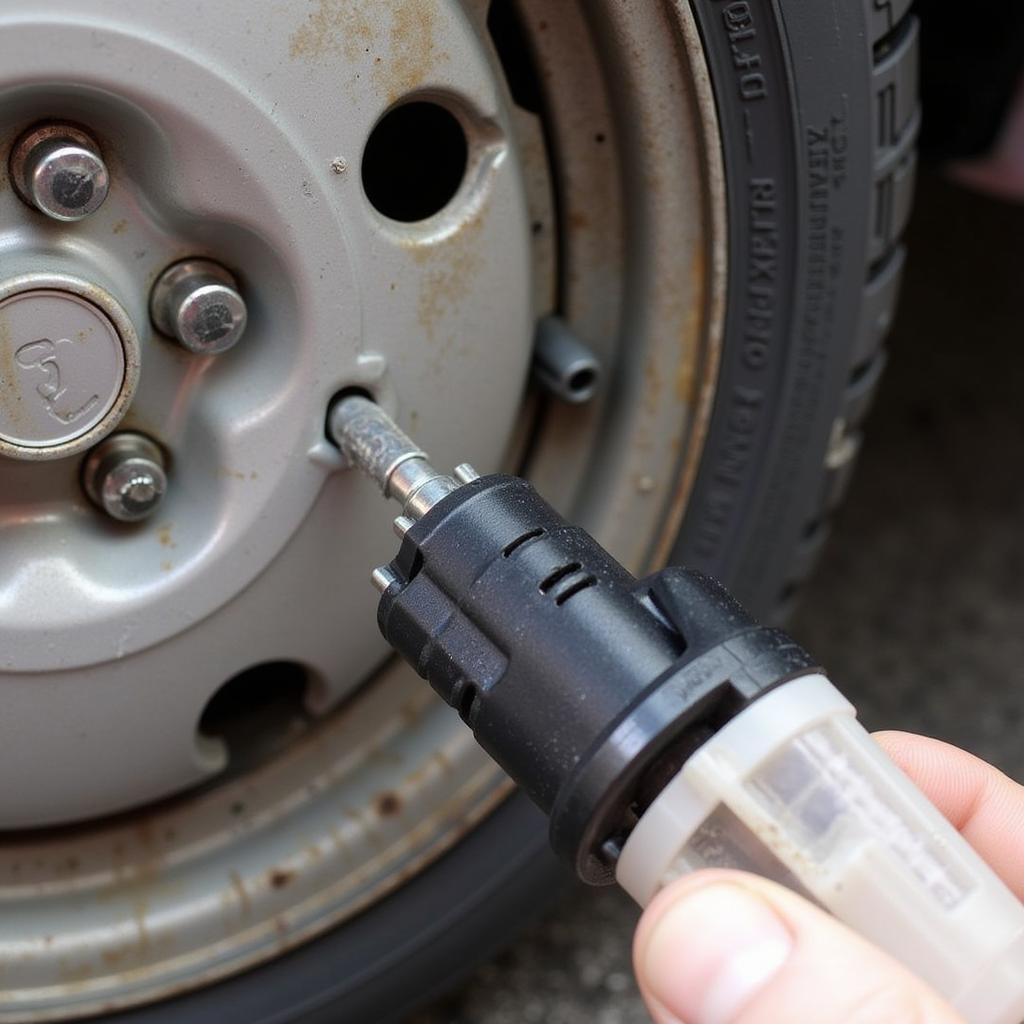 Toyota Avalon ABS Sensor
Toyota Avalon ABS Sensor
When to Seek Professional Help
While some causes of a lit brake warning light, like low brake fluid, might seem like straightforward fixes, it’s crucial to remember that your brake system is critical for your safety. If you’re unsure about any aspect of inspecting or repairing your brakes, it’s always best to err on the side of caution and seek help from a qualified mechanic.
Expert Insight
“Remember,” advises master mechanic John Anderson, “even seemingly minor brake issues can escalate into major safety concerns if ignored. Regular brake system inspections and timely maintenance are crucial for ensuring optimal braking performance and your safety on the road.”
Conclusion
Addressing a 1998 Toyota Avalon brake warning light promptly is essential for safe driving. By understanding the common causes and solutions outlined in this guide, you can take the necessary steps to diagnose and resolve the issue, ensuring your peace of mind and safety on the road. Remember, when in doubt, always consult a qualified mechanic for expert diagnosis and repair.
FAQ:
-
Can I drive my Avalon with the brake warning light on?
While it’s technically possible to drive a short distance with the brake warning light on, it’s highly discouraged. The light indicates a potential issue with your braking system, which could lead to reduced braking performance and increase the risk of an accident. -
How often should I check my brake fluid?
It’s a good practice to visually inspect your brake fluid level at least once a month and top it off if needed. Additionally, have your brake system professionally inspected annually or as recommended in your Avalon’s owner’s manual. -
How long can I drive with worn brake pads?
Driving with worn brake pads is extremely dangerous. If your brake warning light is on due to worn pads, have them replaced immediately to avoid further damage to the rotors and ensure safe braking distances. -
How much does it cost to replace a brake caliper on a 1998 Toyota Avalon?
The cost of replacing a brake caliper can vary depending on labor rates and if you choose OEM or aftermarket parts. On average, expect to pay between $250 and $500 per caliper for parts and labor. -
What is the difference between the brake warning light and the ABS light?
The brake warning light typically illuminates as a general warning for issues with the hydraulic brake system, such as low brake fluid or worn pads. The ABS light, on the other hand, specifically indicates a problem with the Anti-lock Braking System. While both lights warn of potential braking issues, they represent different systems.

